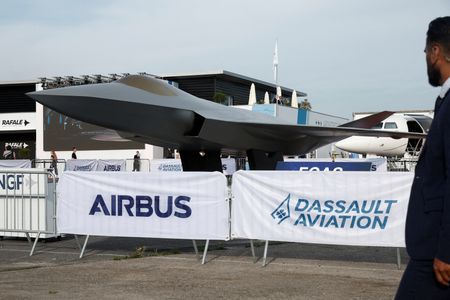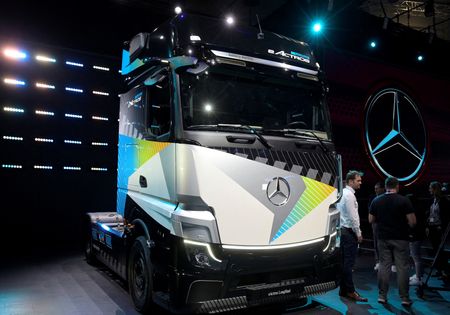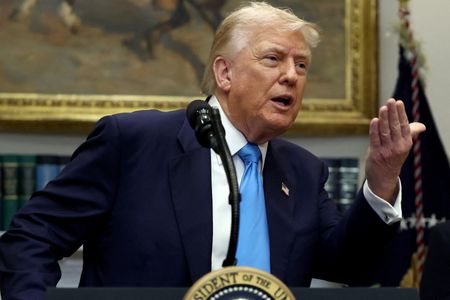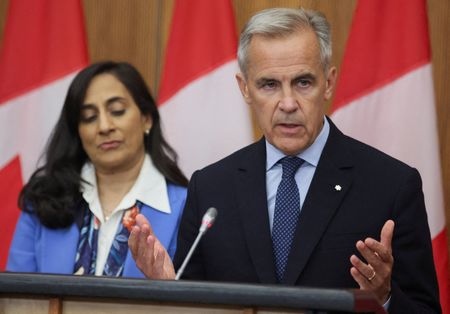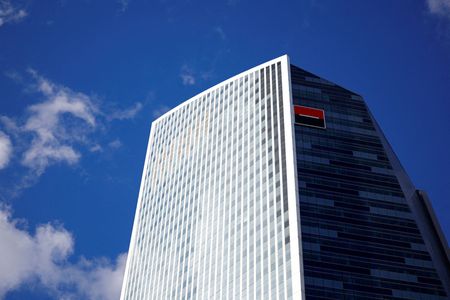By Tim Hepher
PARIS (Reuters) -Europe’s Airbus challenged its partner Dassault Aviation on Wednesday to “decide what it wants to do” after Dassault questioned arrangements for a new fighter, in the latest sign of tensions over the Franco-German-Spanish project.
Dassault and Airbus, two industry rivals called on to work together after French President Emmanuel Macron and then-German Chancellor Angela Merkel launched the Future Combat Air System (SCAF) initiative in 2017, have sparred repeatedly over the running of the project to replace current warplanes by 2040.
Last week, Dassault Aviation CEO Eric Trappier called for clearer leadership of the project and accused Airbus of causing delays by interfering in the core crewed fighter part of the project known as Pillar One, which is led by Dassault.
Dassault represents France and Airbus is the anchor for Germany and Spain in the project, which is currently in the early design stage known as Phase 1B, with plans to launch a second phase next year aimed at building a demonstrator.
“There is an agreed governance for the launch of Phase 1B; we are in this governance,” Airbus CEO Guillaume Faury told reporters at a mid-year results briefing on Wednesday.
“If in one pillar there is one industrial partner that is not happy with the governance, they need to decide what they want to do and I leave it to them,” he said.
“But when it comes to Airbus, we intend to continue to serve the countries and the ministries of defence that have contracted us for Phase 1B, and we intend to continue on the programme. So when it comes to Airbus, we keep going.”
Dassault could not immediately be reached for comment.
Rising tensions have prompted concerns that the project could fall apart, echoing France’s decision to quit the Eurofighter project in the 1980s and develop what became the Rafale, though it still has significant political support.
Asked last week if Dassault was threatening to leave the current project, widely known by its French initials SCAF, Trappier said the programme’s wider future was at stake.
“It is not a question of leaving SCAF but of deciding if it continues or not,” he said. He denied reports that Dassault was seeking 80% control.
Under the current framework, the three nations have an equal share of the broader project, but Airbus covers two-thirds since it represents both Germany and Spain. Each company also has day-to-day leadership of specific parts of the project, which includes a connected system of drones teamed with each fighter.
Germany’s defence minister Boris Pistorius said after meeting his French counterpart last week that Germany and France would seek to clarify the situation by the end of the year, Defense News reported.
(Reporting by Tim Hepher; Editing by Jamie Freed)

